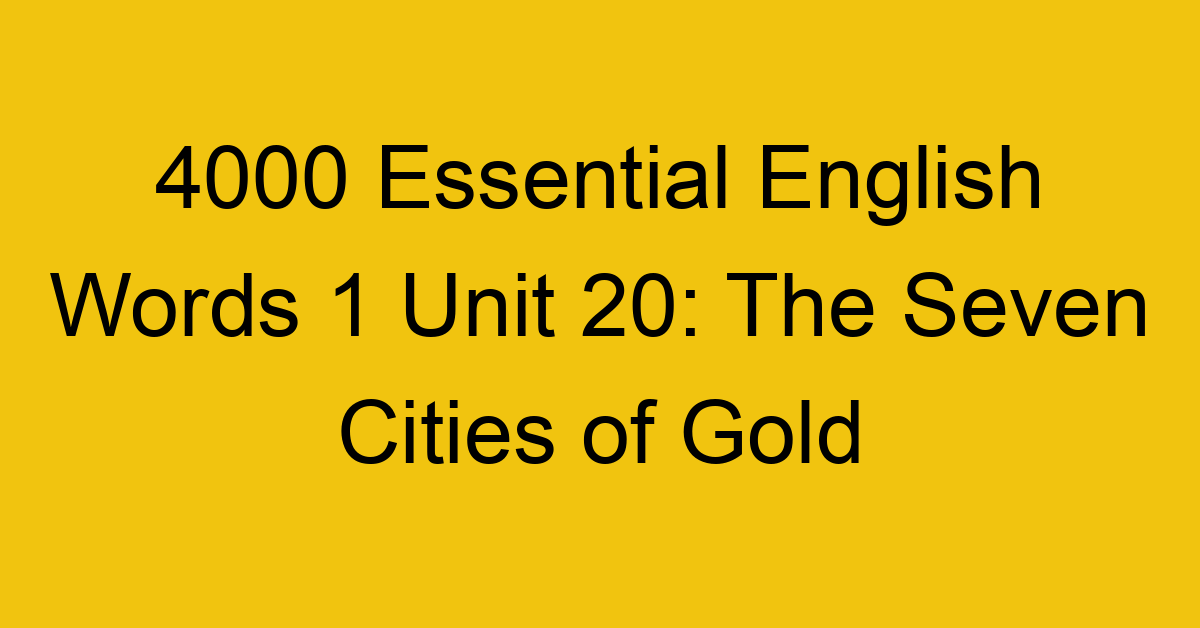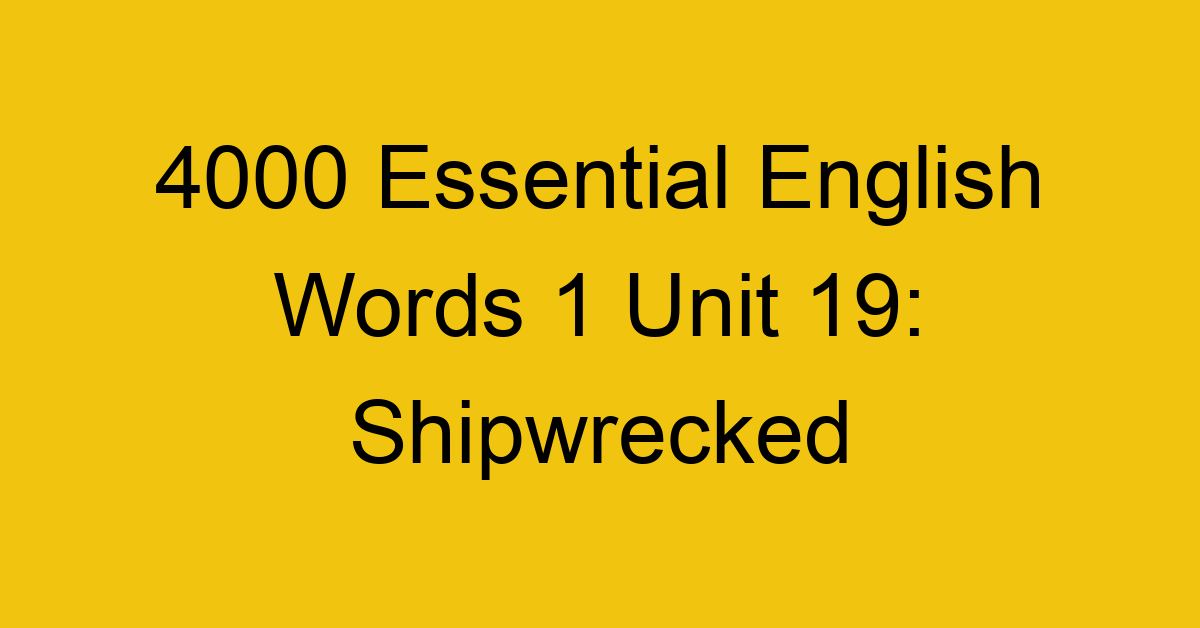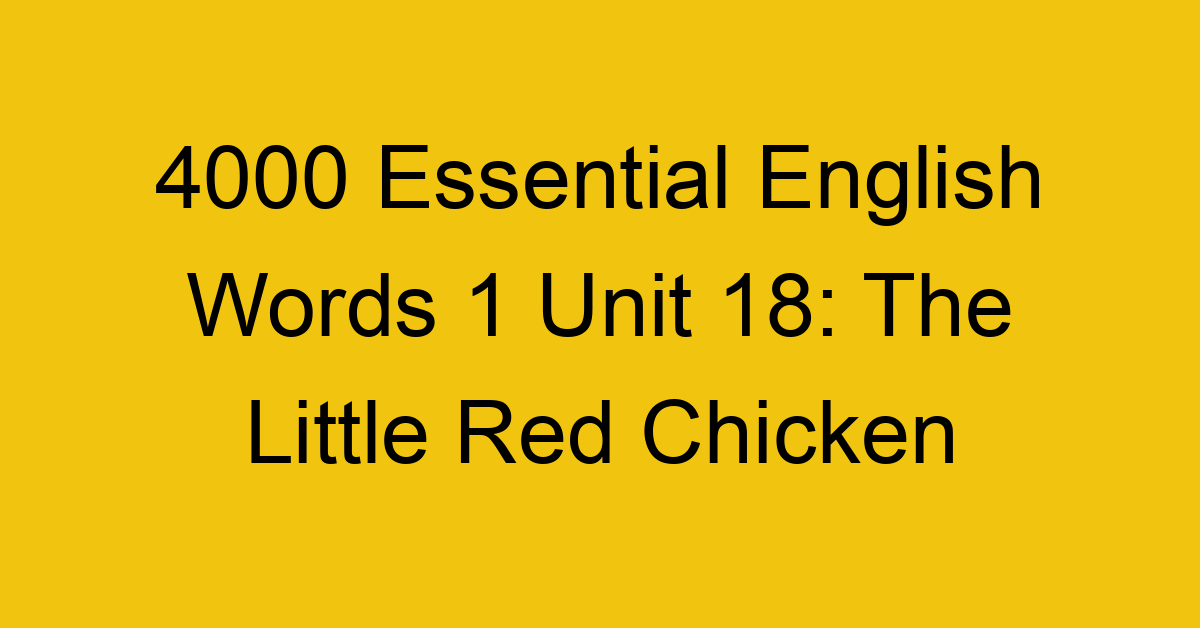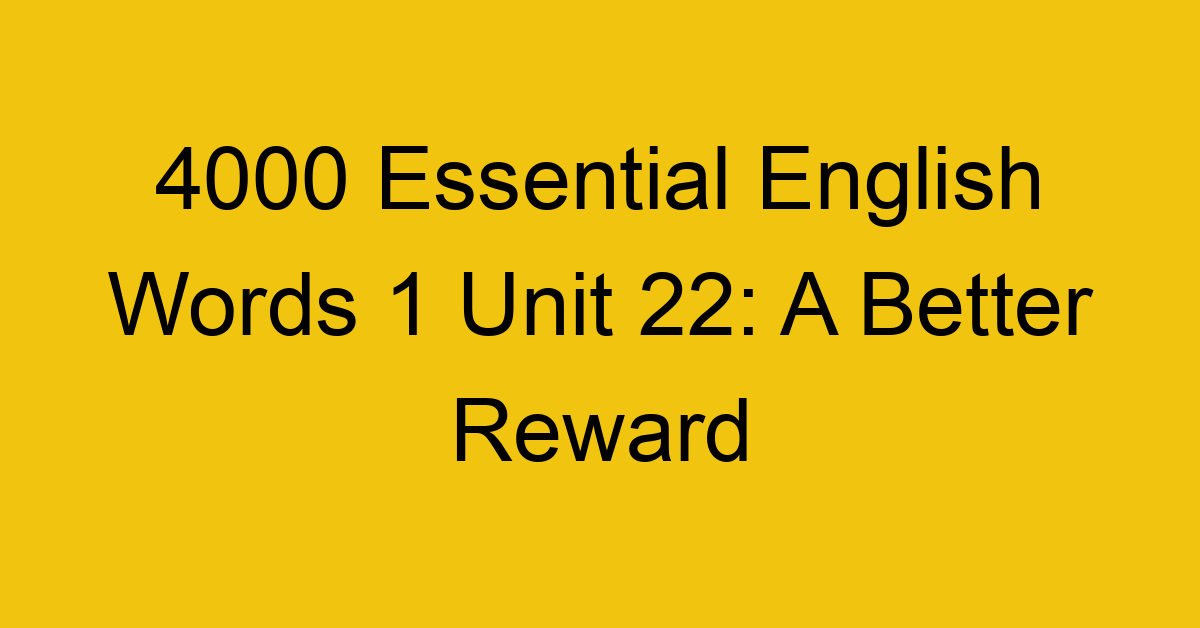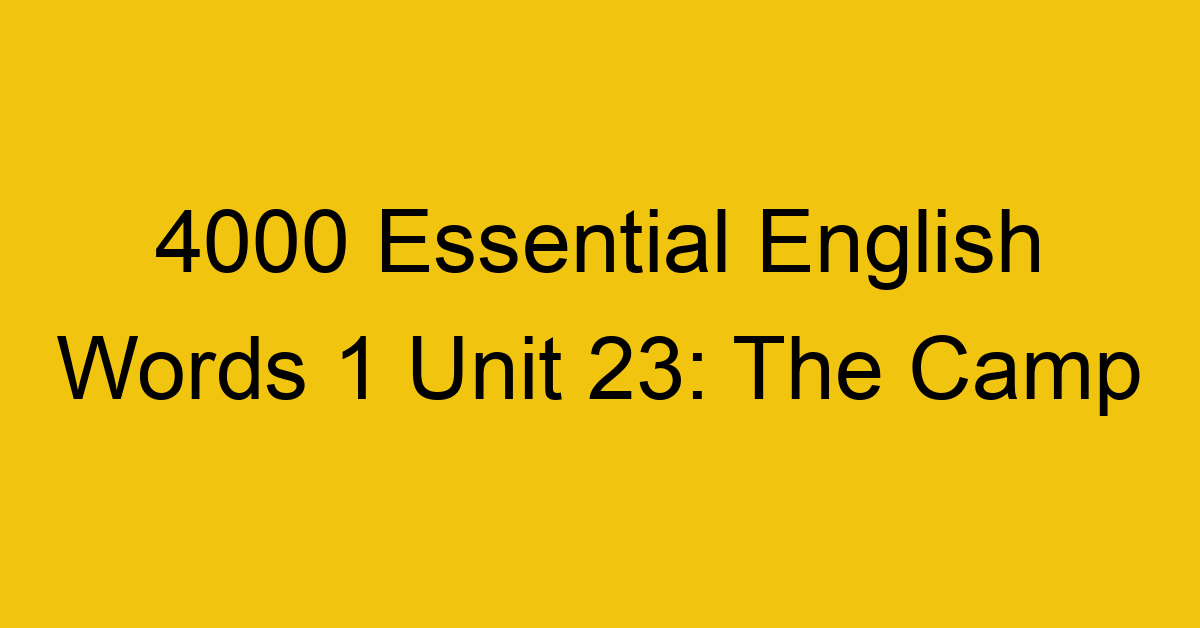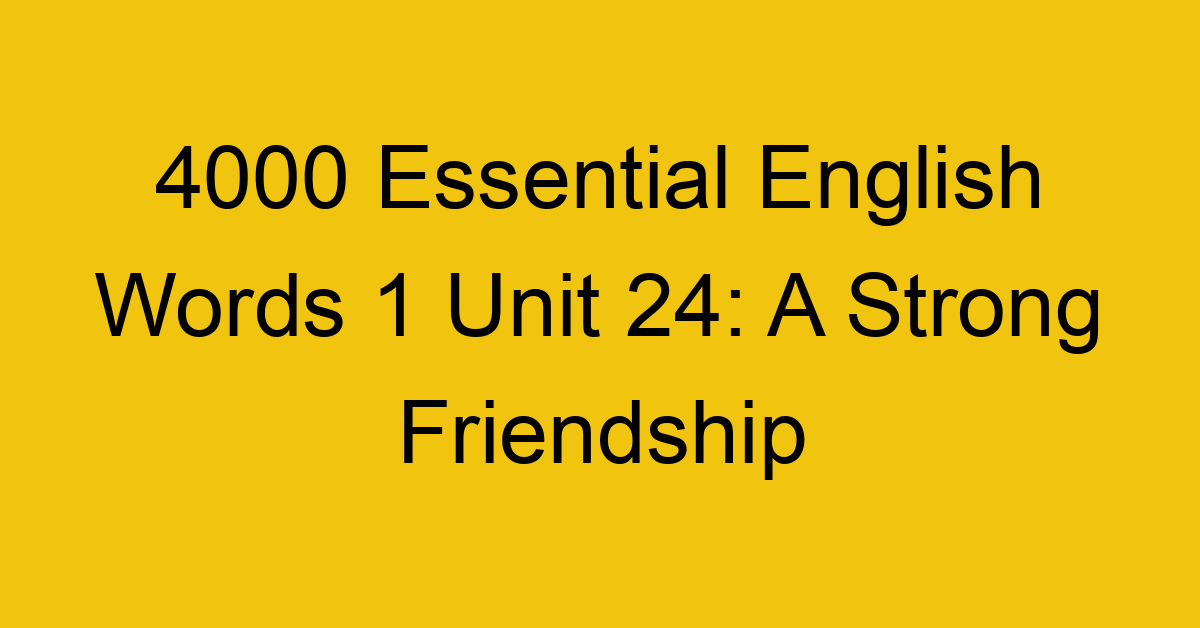4000 Essential English Words 1 Unit 21: Katy
Word List
- appear [əˈpɪə] v.
To appear is to seem.
→ She appeared to be sad. She was crying.
- base [beɪs] n.
The base is the bottom of something.
→ The base of the table has three legs.
- brain [breɪn] n.
The brain is the organ in your head that lets you think.
→ You must use your brain to solve the problem.
- career [kəˈrɪə] n.
A career is a job that you do for a large part of your life.
→ He was in the hospitality business for most of his career.
- clerk [klɑːk] n.
A clerk is a type of worker. Clerks in a store help customers.
→ The clerk added up her bill for the groceries.
- effort [ˈɛfət] n.
Effort is hard work or an attempt to do something.
→ He always puts a lot of effort into his studies.
- enter [ˈɛntə] v.
To enter a place is to go into it.
→ Two guards greeted me as I entered the front door.
- excellent [ˈɛks(ə)l(ə)nt] adj.
When something is excellent, it is very good.
→ I got an excellent score on my school test.
- hero [ˈhɪərəʊ] n.
A hero is a brave person who does things to help others.
→ To children, the man in the blue and red costume was a real hero.
- hurry [ˈhʌri] v.
To hurry is to do something quickly.
→ I hurried home on my bike.
- inform [ɪnˈfɔːm] v.
To inform someone is to tell them about something.
→ I called and informed her about my idea.
- later [ˈleɪtə] adv.
Later means after the present, expected, or usual time.
→ She missed the train, so she’ll arrive a little later than expected.
- leave [liːv] v.
To leave means to go away from someone or something.
→ He packed his bag and was ready to leave for home.
- locate [lə(ʊ)ˈkeɪt] v.
To locate something is to find it.
→ I could not locate my keys in the house.
- nurse [nəːs] n.
A nurse is a person who helps sick people in the hospital.
→ A nurse helped me get better.
- operation [ɒpəˈreɪʃ(ə)n] n.
An operation is when a doctor replaces or removes something in the body.
→ The operation on my arm was a success.
- pain [peɪn] n.
Pain is the feeling that you have when you are hurt.
→ His head was full of pain.
- refuse [rɪˈfjuːz] v.
To refuse something is to say “no” to it.
→ The dog refused to play with the cat.
- though [ðəʊ] conj.
Though is used when the second idea makes the first seem surprising.
→ Though he was overweight, he liked to be active.
- various [ˈvɛːrɪəs] adj.
If something is various, there are many types of it.
→ She owned shoes of various styles.

